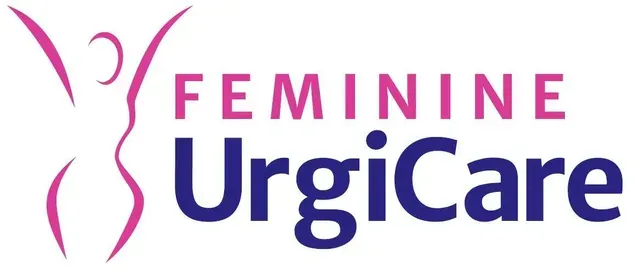Understanding And Cultivating Meaningful Relationships
As digital communication increasingly dominates, these genuine connections become more precious, serving as an anchor in our social and professional realms. After all, at the end of our lives, it’s not our achievements we’ll remember most – it’s the connections we made and the lives we touched along the way. So maybe it’s time to put down the phone, step out of your comfort zone, and start building the meaningful connections you’re really craving. Keeping strong social connections is key for our well-being. Friends can make us feel better, offer support, and lower stress and loneliness.
Cultivating meaningful connections isn’t just a nice-to-have; it’s a fundamental aspect of a fulfilling life. So, let’s commit to nurturing the connections we have, actively seeking new ones. Empathy is a cornerstone in nurturing conversations that are meaningful.
Clear and open communication forms the foundation of healthy relationships. Active listening is crucial – giving full attention and seeking to understand the other person’s perspective. Expressing thoughts and feelings honestly yet respectfully helps build trust and intimacy. Positive psychology focuses on cultivating well-being and human flourishing.
By making small shifts in how we think about and approach connection, we can build more fulfilling relationships and create a richer, more connected life. Learning how to connect with people is a great way to get closer to friends and family. It can also help us relate to coworkers and put new friends at ease.
- They are fulfilled when their efforts contribute to a broader mission or long-term goal.
- By making small shifts in how we think about and approach connection, we can build more fulfilling relationships and create a richer, more connected life.
- By being careful, we can enjoy social media without losing touch with the world around us.
- A meaningful connection is the person who calls you when they need someone to vent to.
Treatment & Support
These days, it’s way too easy to be physically present and mentally not there. Put your electronics away and engage with who you’re with! By genuinely interacting with others, we create opportunities https://www.f6s.com/company/talkyspace for authentic connection. It turns out, our brains aren’t always the best at interpreting our social lives.
Continue building the connection by continually reaching out and communicating in between hangouts. While the frequency of communication might vary for each relationship, I encourage you to find what works for both of your goals around connection. After you hang out one-on-one, you’ll likely have some idea of what their interests are to message about in between hangouts. Whether through social media or text, following up and staying connected outside of meetups is important to sustaining the connection. It’s a good idea to ask your new friend how they prefer to stay in touch outside of your hangouts. Everyone has their preferred method of communication; some people enjoy phone calls, while others prefer texts.
Goal-setting activities align with clients’ values and aspirations. Expressing appreciation strengthens bonds between partners. Daily gratitude rituals, such as sharing three things they’re thankful for about each other, can boost positive emotions. Partners can keep gratitude journals to document moments of kindness or support. Consistency and reliability are important traits in any professional relationship.
Phone and video calls can encourage a sense of intimacy, for example, while writing letters promotes feelings of thoughtfulness. Even a 2021 study showed texting was linked to higher relationship satisfaction for folks in long-distance relationships. Embrace transparency, foster a sense of belonging, form connections – and have fun along the way.
When leadership steps into the learner role, it levels the playing field and encourages a culture of humility and curiosity. Start your week with a quick, optional team ritual—like a one-word check-in, a Monday meme exchange, or a “what’s one thing you’re looking forward to? These short bursts of connection set the tone for the week ahead. If you look around with an open mind, you will find communities that can elevate your life experience. The key is to embrace diverse experiences and interests, stay curious about others, and show commitment by both offering and seeking support.
Nurturing Existing Friendships
Shared meditation or breathing exercises can reduce stress and increase relationship harmony. Setting aside time for device-free interactions ensures quality time together. Gratitude practices extend beyond the relationship itself.
Effective conflict resolution is another key communication skill. This involves addressing problems calmly, focusing on the issue rather than blaming, and working together to find solutions. Conflicts are inevitable in any relationship, but how they are handled is crucial for their growth. Information for our community partners as we join forces with YBGR to enhance support for youth and families. Youth Dynamics and Yellowstone Boys & Girls Ranch unite to enhance behavioral health care for Montana’s youth.
Volunteer In The Community
Start by identifying elements within the initial conversation that might lead to more meaningful discussions. This could involve a shared interest, a mutual acquaintance, or a relevant current event. Build on these by sharing your own thoughts, feelings, or experiences and encouraging the other person to do the same.
It’s great for those who find it hard to meet people in person. When talking to friends, put away distractions, look them in the eye, and really get what they’re saying. Maintaining friendships through life’s ups and downs is tough. To build a meaningful relationship, you have to care about it, commit to it, and then hold yourself accountable to that commitment.
Encouraging partners to express thanks for life’s blessings can cultivate a more positive outlook overall. The field of positive psychology emerged in the late 1990s. Martin Seligman, often considered the father of positive psychology, played a crucial role in its development.
